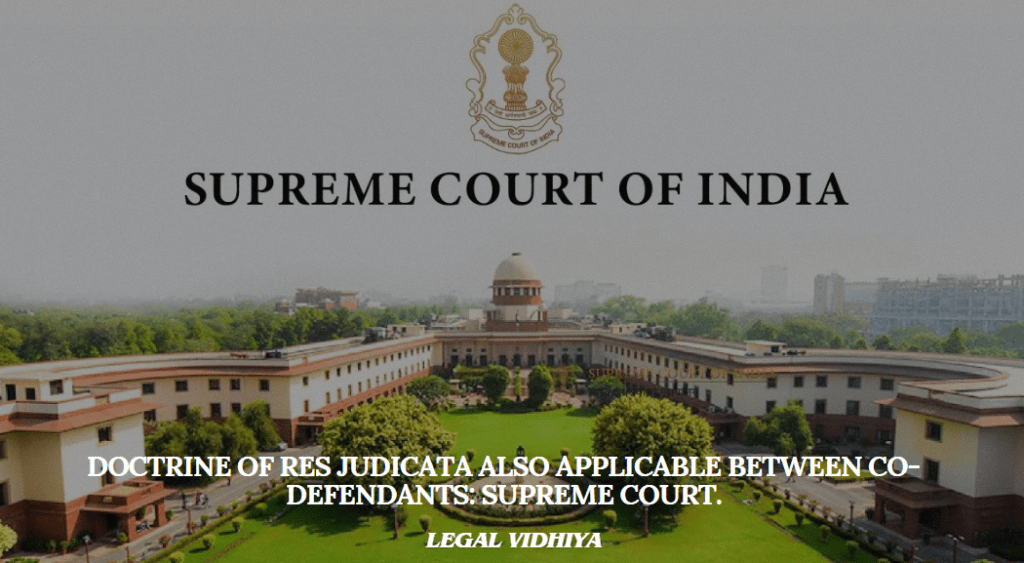
Res judicata, a Latin term meaning “a matter adjudged”, In other words, if a case has already been decided by a court involving the same parties, the court will not reconsider it. This principle, applies to both civil and criminal law systems, preventing the same case from being tried multiple times. For example: In a case, new lawsuit was filed in which the defendants requested that the Court dismiss the lawsuit with a plea of res judicata. She was barred from bringing a claim of res judicata because her previous claim was dismissed for fraud. The Court said that the defence of res judicata must be proved by evidence.
In a recent judgment, the Supreme Court has clarified that the principle of res judicata can indeed apply between co-defendants, provided that there exists a conflict of interest between them.
The Court emphasized that for the principle of res judicata to be invoked between co-defendants, it must be established that there is a clash of interests between the parties. This means that the interests of one co-defendant must be adverse to those of another co-defendant, such that the resolution of the dispute between them would necessarily affect the rights and liabilities of the other party. In the absence of such a conflict of interest, the principle of res judicata would not be attracted between co-defendants.
In explaining the context and significance of the principle of res judicata, the Supreme Court referred to the case of Govindammal v. Vaidyanathan, which outlined three key conditions that must be met for the principle to apply between co-defendants. Firstly, there must be a final judgment or order in a previous suit that has been fully and finally adjudicated by a competent court. Secondly, the parties in the subsequent suit must be the same as those in the previous suit, or must have been represented by the same parties. And finally, the matter in issue in the subsequent suit must have been directly and substantially in issue in the previous suit, and must have been heard and finally decided by the court.
By clarifying the application of the principle of res judicata between co-defendants, the Supreme Court has reinforced the importance of finality and conclusiveness in legal proceedings. This decision serves to prevent the unnecessary re-litigation of issues that have already been decided, and ensures that the interests of all parties involved are protected. It also highlights the need for careful consideration of conflicts of interest between co-defendants, in order to determine when the principle of res judicata can be invoked to prevent further litigation.
In conclusion, the principle of res judicata is a fundamental legal doctrine that promotes judicial efficiency and fairness in the resolution of disputes. By recognizing its applicability between co-defendants in cases where there is a conflict of interest, the Supreme Court has provided clarity and guidance on this important aspect of civil procedure. This decision serves to strengthen the principles of finality and conclusiveness in legal proceedings, and underscores the significance of upholding the rule of law in the administration of justice.
Case mentioned: Govindammal v. Vaidyanathan
Citations: HCP(MD).1651/2021
Natasha Bothra of Asian Law College, intern under legal vidhya
Disclaimer: The materials provided herein are intended solely for informational purposes. Accessing or using the site or the materials does not establish an attorney-client relationship. The information presented on this site is not to be construed as legal or professional advice, and it should not be relied upon for such purposes or used as a substitute for advice from a licensed attorney in your state. Additionally, the viewpoint presented by the author is of a personal nature




0 Comments